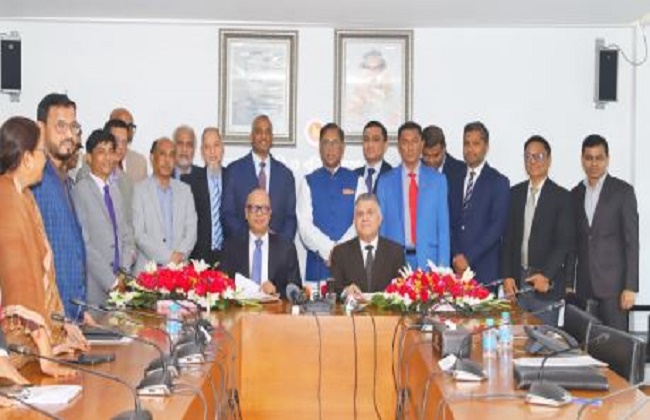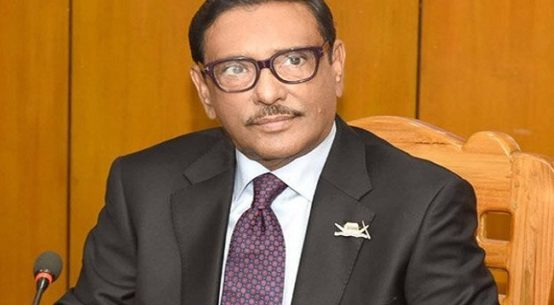
State Minister for Power, Energy and Mineral Resources Nasrul Hamid on Wednesday said that the government is committed to ensure energy security in the country.
“The overall price of oil and gas has increased in the global context so it is very difficult to maintain energy security.
But efforts are underway to ensure energy security,” he said this while witnessing a signing ceremony of about $2.1 billion support agreement of Energy Division with International Islamic Trade Finance Corporation (ITFC) at his ministry here.
Energy and Mineral Resources division secretary Md Nurul Alam and ITFC, Saudi Arabia chief operation officer Nazeem Noordali signed the agreement on behalf of their respective sides.
The state minister said that efforts are going on to seek cooperation from oil and gas enriches countries along with increasing of domestic natural gas and oil exploration and extraction activities.
He said that the ITFC has been cooperating with the government in oil import for a long time, adding, “Now it will cooperate for purchasing of gas as well as oil. Gas can be purchased with about $500 million, which will help a lot in solving the crisis in future.”
The heads of the respective division among others were present at the signing ceremony.
The concept of energy security has become the critical discussion agenda in the energy literature as it can help countries achieve economic stability (Amin et al., 2021a). Accordingly, the recent literature on energy security has also received new momentum due to its critical importance to various stakeholders, diverse energy markets, and transitional energy problems (Ang et al., 2015). Existing literature argues that the traditional definition of energy security is perhaps limited and needs to be expanded for better understanding of the implications of energy security (Vivoda, 2010; Von Hippel et al., 2011 Månsson et al., 2014; Martišauskas et al., 2018; Taghizadeh-Hesary et al., 2019, 2021; Sarangi et al., 2019).
Apart from the core criteria, Von Hippel et al. (2011) highlight some new components such as environment, technology, socio-cultural factors. On the other hand, Vivoda (2010) discusses the importance of human security, geopolitical incidents, and well-structured policies while analysing the energy security level.
However, it is also worth mentioning that energy security is an immensely context-dependent concept, which quantifies energy security as a problematic task. So far, different approaches have been used to quantify energy security, at least in the sense of relative measurement. Among others, the 4As framework proposed by Yao and Chang (2014) has proven to be a robust approach since it can add indicators depending on the economies’ contextual background and reduce the possibility of complications that may arise while scrutinising comprehensive energy security. The framework relies on four dimensions, namely (i) Availability, (ii) Applicability, (iii) Acceptability, and (iv) Affordability.


